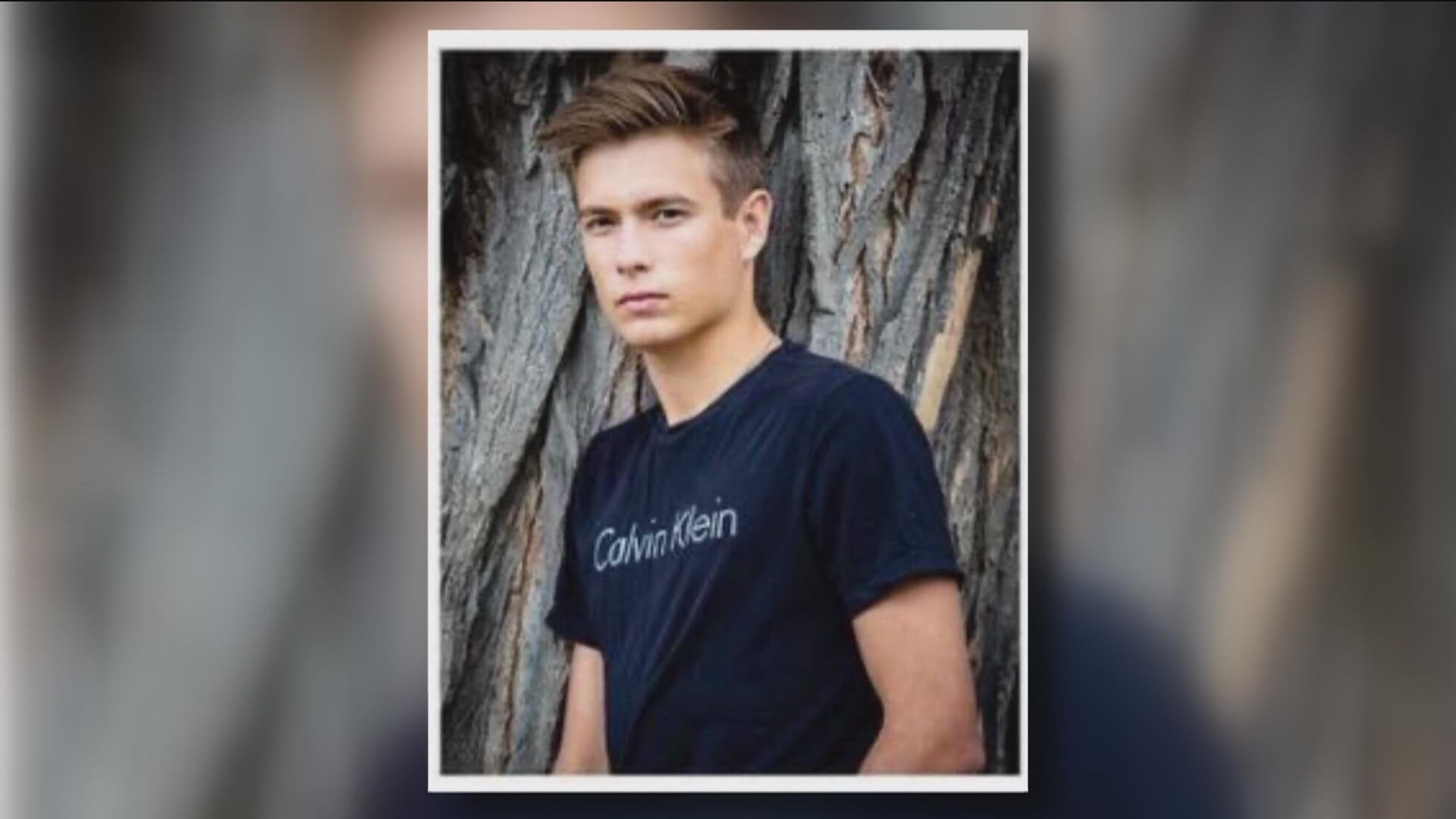COLUMBUS, Ohio — Bowling Green State University denied tolerance of hazing and negligence in the March 2021 hazing death of student Stone Foltz, who died after drinking large amounts of alcohol during the Pi Kappa Alpha -- also referred to as PIKE -- fraternity's Big/Little hazing ritual.
The Foltz family filed a lawsuit against BGSU on June 22, claiming the university bears responsibility for the 20-year-old's death following the hazing ritual at an off-campus house and was aware of a history of hazing on the campus. The lawsuit was filed on Shari Foltz's behalf by Columbus-based Cooper Elliott law firm.
The family is seeking an unspecified amount of money, but according to the lawsuit, they are seeking "in excess of $25,000" for each of the two claims listed, those being a violation of Ohio's anti-hazing statute and negligence of hazing that led to Stone's death.
In a response filed on BGSU's behalf by Ohio Attorney General Dave Yost, the university claimed it "worked tirelessly to end hazing, within PIKE and every other student organization on its campus" and that it "instituted and actively enforced a policy against hazing."
The Foltz family alleged BGSU "turned a blind eye to hazing" for years in campus Greek organizations while also encouraging students, like Stone, to join them.
The Foltz family further stated the case against BGSU "will be the model for requiring every University to institute far more proactive measures to stop hazing on college campuses."
BGSU said the case being used as a model is a "misguided attempt to place blame for all fraternity hazing with BGSU."
While BGSU's response contends it has actively enforced its anti-hazing policy, Foltz Family Attorney Rex Elliott said there is nothing "that is surprising or demonstrates an adequate effort to proactively stop hazing before it occurs. This is the issue in the case."
The Foltz family said the university was aware of PIKE's history of hazing. The university acknowledged prior investigations into the fraternity.
The Foltz family also said it was aware of the BGSU chapter's Big/Little ritual as recently as 2019, yet did nothing to stop it. The family emphasized in their lawsuit the ritual BGSU knew of was "the exact hazing ritual that took Stone's life."
The family said Stone would not have died if not for BGSU's "gross recklessness, lax policies, lax enforcement of (anti-hazing) policies, promotion of PIKE’s Delta Beta Chapter, perfunctory 'investigations,' and willful inaction in the face of repeated warnings."
BGSU's response denies many allegations in the lawsuit and states it lacks information to respond to others.
The university also places some of the responsibility for Stone's death on Stone himself, stating "The university cannot be liable for negligence based on Mr. Foltz’s failure to use due care for his own safety."
The university also places responsibility on the fraternity and its members, stating "The University is not responsible for the off-campus, criminal actions of the now-expelled students who violated University policy, actively concealed the activity from the University and thwarted the University’s investigation."
In April 2021, BGSU permanently banned PIKE from campus after the fraternity was found to have engaged in a pattern of hazing over a number of years.
BGSU administrators expelled three students and suspended 18 others after Stone's death.
Eight defendants faced charges in Stone's death. Six of them took plea deals, two others were convicted at trial.
On Aug. 2, BGSU hosted the first Ohio anti-hazing summit, where cultural changes and incident reporting were emphasized.
At the summit, BGSU President Rodney Rogers said there are three main ways schools and organizations can help stop hazing: education, reporting incidents and outreach.
The summit happened about one year and five months after Stone's death.

